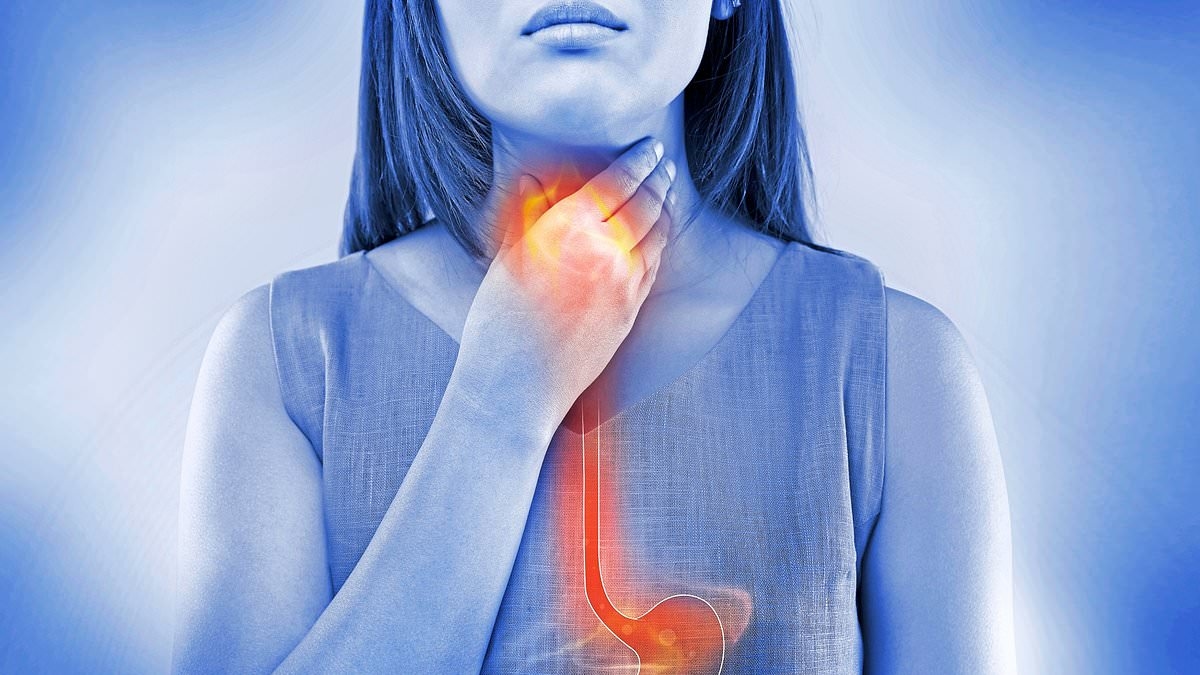Acid reflux increases risk of heart attack by nearly a third, new study reveals

Published: | Updated:
Chronic acid reflux could raise the risk of heart attack by nearly a third, a study shows.
Gastroesophageal reflux disease – or GERD – is a chronic digestive condition in which stomach acid flows back into the oesophagus, the tube linking the throat and the stomach, causing heartburn, chest pain and difficulty swallowing.
More than 20 percent of Britons will suffer GERD at some point in their lives – and 1.5 million need long-term medication for it.
Without treatment, the condition can cause permanent damage to the oesophagus and the respiratory tract.
Now researchers believe that it could even put patients at increased risk of heart attack.
Scientists in Philadelphia analysed the medical data of more than 1.3 million patients across six studies to determine whether GERD is a risk factor for heart attack.
They found that patients with GERD had a 27 percent higher risk of heart attack than those without the condition.
They say that chronic inflammation and nervous system failure caused by GERD is likely to be the cause of this increased risk.
More than 20 percent of Britons will suffer GERD at some point in their lives – and 1.5 million need long-term medication for it
Scientists in Philadelphia analysed the medical data of more than 1.3 million patients across six studies to determine whether GERD is a risk factor for heart attack. They found that patients with GERD had a 27 percent higher risk of heart attack than those without the condition
Previous studies have also shown that GERD and chronic heart disease have similar risk factors, including drinking, smoking, being overweight and being male.
These factors could partially explain why GERD increases the risk of heart attack, suggest the researchers.
Dr Tinsae Anebo, the study’s lead author, adds: ‘These findings highlight the need for further research into preventive strategies and targeted interventions, such as acid suppression therapy and lifestyle modifications, to mitigate cardiovascular risk in GERD patients.’
Treatments for GERD involve dietary changes – such as avoiding foods that trigger the symptoms and eating smaller, more frequent meals – as well as lifestyle adjustments, which can include losing weight and changing sleeping position.
Medications such as antacids, which neutralise stomach acid, and proton pump inhibitors (PPIs) can also heal damage to the oesophagus.
However, long-term use of PPI medications can contribute to heart disease by affecting the vascular function of the heart – another factor that should be considered when investigating a link with GERD, the study’s authors add.
Daily Mail





